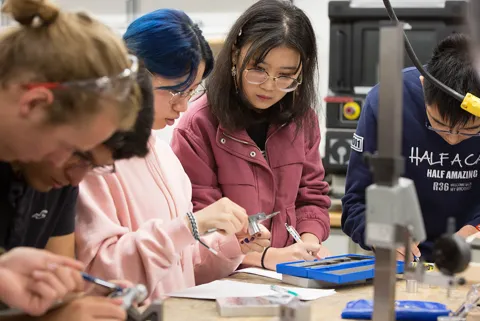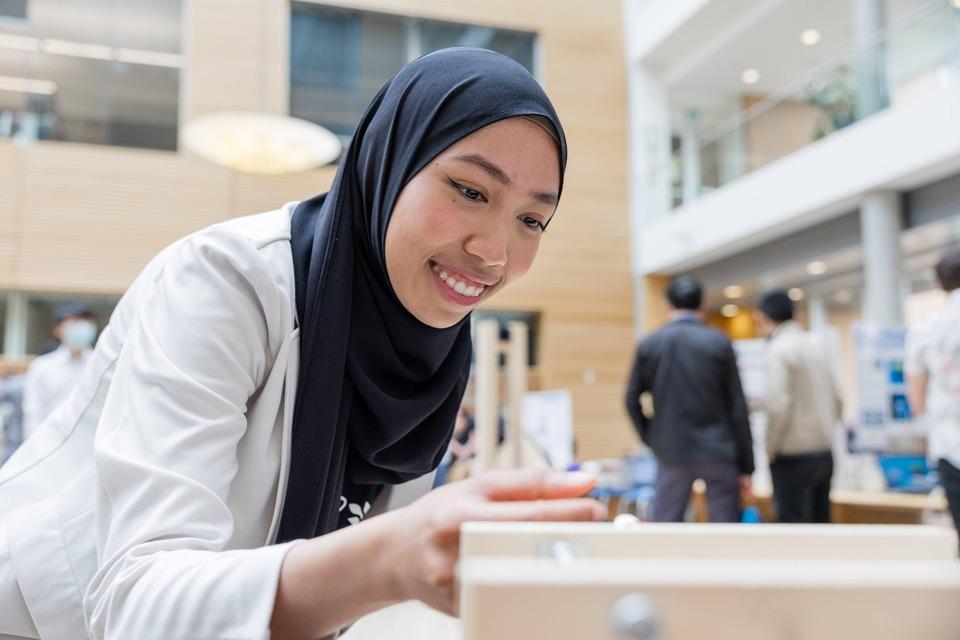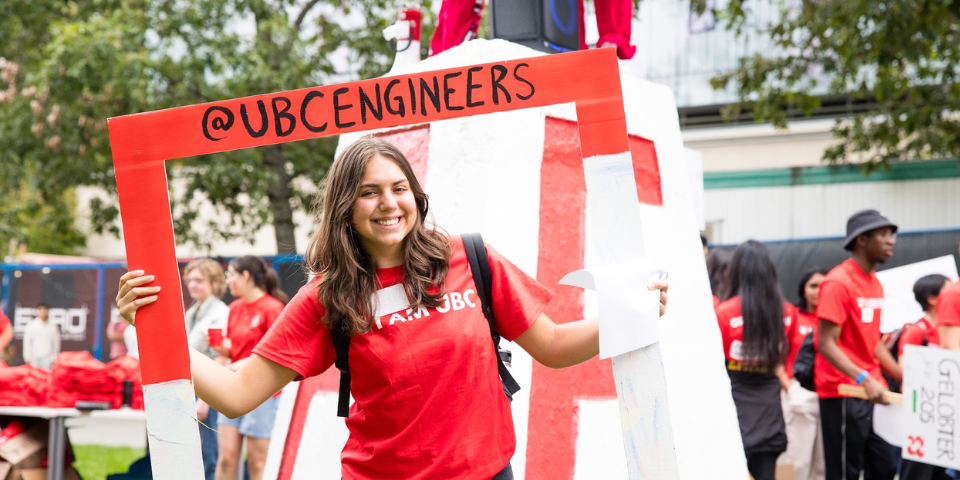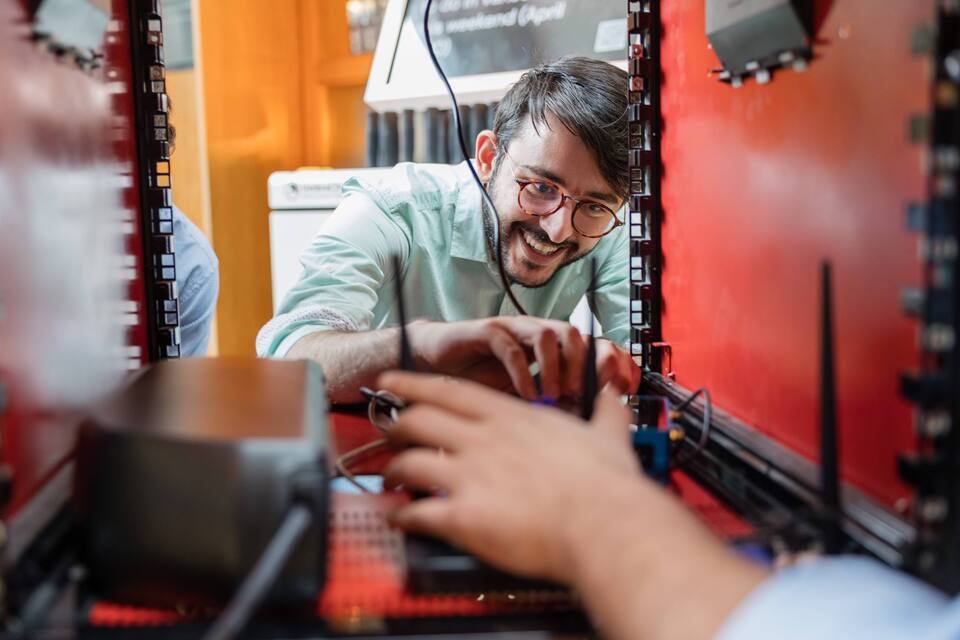
Imagine being a first-year engineering student and coming up with a solution to a real-world problem that’s actually implemented, wins a national or international award for innovation, or receives funding so the idea can be put to good use in industry and the community.
This happens at UBC Okanagan every year. In 2021, for example, a student team placed in the top two in the AquaHacking Challenge for their design of a mobile filtration station. In addition to bragging rights, they were awarded $20,000 in funding to advance their idea through a start-up incubator.
“We believe that creativity and passion are key to being a great engineer,” says Sabine Weyand, Associate Professor of Teaching at the School of Engineering. “And although our first-years don’t yet have technical expertise in engineering, they are very creative and passionate. With the right guidance and tools, they have proven time and again that they can come up with great solutions to real-world problems.”
Sustainable engineering design
At UBC Okanagan, the first semester engineering course focuses on sustainable engineering design, where students explore the connections between engineering and sustainability, while also gaining crucial skills like how to work in groups, time management and leadership.
For the final project in the course, students design a solution to address a sustainability goal, such as access to clean water, sustainable resource use or clean energy.
“By the end of the semester, students have a solution to a real-world problem that they can, if they wish, move forward with trying to commercialize or enter into a student design competition,” says Dr. Weyand.
In 2023, students from UBC Okanagan represented Canada at the UNESCO World Engineering Hackathon, where they placed second for their filtration device that purifies water during floods.
Students’ ideas don’t just win competitions – they are actually implemented at UBC and beyond.
“It was amazing to share my skill set with my peers and learn from them [in APSC 169],” says Erika Pineo, who graduated in 2023. “It resulted in an influential water consumption reduction program that was implemented by UBC Sustainability and remains on campus today.”
“We believe that having students work on these real-world problems benefits both students and society,” says Dr. Weyand. “It’s their opportunity to dive deep, apply engineering principles, use the design cycle and better understand the value of the foundational knowledge they’ll be learning in second and third year.“
UBC Okanagan at the UNESCO World Engineering Hackathon
All first-year courses taught by engineering profs
At UBC Okanagan, required first-year courses in math, physics, chemistry, coding and communication are taught by faculty members from the School of Engineering.
“This allows for a lot of coordination among the content and deliverables and means we can weave in engineering examples in these core courses,” explains Dr. Weyand.
Setting you up for success
“UBC Okanagan offers a very intimate learning environment and unique educational culture,” says Dr. Taheri. “Like my colleagues in the School of Engineering, I’ve always had an open door policy and I encourage my students to come and talk with me.”
Whether you choose UBC Okanagan or UBC Vancouver, at the end of first year you will have the technical and core skills you’ll need to succeed wherever your engineering journey takes you. Having been exposed to the different engineering specializations, you’ll also benefit from the first-year advantage of UBC Engineering compared to other schools – giving you a year to explore your options and figure out which engineering specialization is best suited for your passions and interests.








